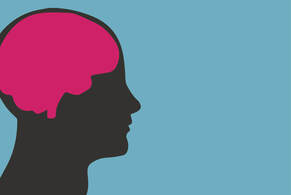Menopause and Menopausal Symptoms |
Breast cancer and its treatment can lead to a variety of issues related to your body's natural cycles. Menopause is when menstrual periods stop permanently. When this happens, the ovaries stop producing estrogen and no longer release eggs (ovulation).
|
Menopause happens naturally as women age. Sometimes medical issues or treatment can cause menopause to occur early or abruptly. Breast cancer treatments may causes temporary or permanent menopause.
|
|
Spontaneous (natural) menopause
Individuals in their 40s or 50s undergo natural menopause as eggs are used up and their ovaries gradually stop producing estradiol, an estrogen hormone. This is called spontaneous menopause and it is considered complete when a person goes through 12 consecutive months without having a period. Induced (premature) menopause
Induced or premature menopause happens when health issues cause your menstrual cycle to stop. Two treatments that can cause this in young adults with breast cancer are chemotherapy and oophorectomy, which is surgical removal of the ovaries. Most young breast cancer patients do not go through menopause right away with treatment, even if they've had chemotherapy. However, chemotherapy may damage the ovaries and reduce fertility. This often results in amenorrhea (irregular periods or no periods at all). Even if periods do continue, ovarian damage from chemotherapy can lower estrogen levels in the body and lead to symptoms of menopause. In addition, medications like ovarian suppression shots or those that block estrogen (like tamoxifen) or lower estrogen (like aromatase inhibitors such as exemestane, anastrozole, and letrozole) may also cause symptoms, even though their effects may be temporary. These hormonal treatments may also cause changes in periods without causing menopause.
|
Highlighted Webcast: |
|
Menopausal symptoms
Whatever the cause, menopausal symptoms vary widely from one person to another. The good news is that there are concrete ways to deal with most of them if and when they do arise. Common symptoms include:
Other issues include:
For more information, read a Dana-Farber teaching sheet about cancer and menopause. Hot flashes and night sweats
Those going through menopause often experience hot flashes. The blood vessels (in the head and neck in particular) open wider than usual and allow more blood to flow through. This results in sudden and intense heat sensations. Hot flashes can lead to sweating, redness, or a racing heart. They can last from a few seconds up to 10 minutes, but on average, they last about 4 minutes. Here are some ways to ease the discomfort: Avoid triggers that may lead to hot flashes. It helps to figure out if you have triggers and what they are. They are unique to each person, but common examples are:
Pay attention to your clothes.
Cool down. Place a cool pack on the back of your neck. Exercise. Physical activity is good for your general health. It can also reduce hot flashes. Try alternative treatments. Try biofeedback, acupuncture, or vitamin and mineral supplements approved by your doctor. Ask about medication. If none of these suggestions work, medication might help. Talk with your doctor about the best options for you. Read a Dana-Farber teaching sheet about hot flashes and excessive sweating. 
Sleep problems
Some people find that menopausal symptoms like night sweats disturb their regular sleep patterns. If you have trouble falling asleep or staying asleep, try some of these techniques:
If you are taking tamoxifen, you may want to avoid sleep medications with diphenhydramine. This is the same thing as Benadryl and is also used in other medications, like Tylenol PM. Some studies suggest that it may reduce tamoxifen's effectiveness. Read a Dana-Farber teaching sheet about managing sleep problems. Memory and mood

According to new research, estrogen may be important for nerve cell function in the brain and for memory. So, lower estrogen levels during menopause can cause people to:
Become forgetful Have trouble finding words Have trouble concentrating These problems may also be related to sleep deprivation, depression, or stress. To try to deal with this problem (regardless of the cause) we recommend focusing on one thing at a time (avoid multitasking), writing things down rather than trying to memorize everything, and trying to stay organized. Read a Dana-Farber teaching sheet about concentration and memory problems. Depression
Those who go through early menopause, either natural or induced, may feel depressed. Symptoms include:
Having breast cancer can also cause depression. Young adults with breast cancer are most vulnerable to depression when they are first diagnosed and when treatment ends. If you have a history of clinical depression, let your doctor know. If your symptoms continue over time, don't ignore them; get help. Anxiety
It's normal to feel anxious about menopausal symptoms or menopause. However, anxiety that lingers or gets worse can become overwhelming. This can cause:
These issues can make it hard to function at home or at work. Most people find they can get control of ongoing anxiety with mental health counseling and/or medication. Speak to your doctor if you are experiencing these symptoms. For guidance around managing anxiety or depression, talk to a social worker at Dana-Farber. Read a Dana-Farber teaching sheet about mental and emotional health. Urinary and Vaginal Problems
Urinary symptoms Estrogen affects many parts of the body, including the bladder. During menopause, reduced estrogen levels weaken the muscles that surround the bladder and hold in urine. This can cause:
Kegel exercises can help to strengthen the bladder muscles. Vaginal symptoms
Changes during menopause can include thinning of the tissues in the vagina and cervix, as well as vaginal dryness. This can result in:
For suggestions on addressing some of these issues, visit our sexual health page or talk with your doctor. Bone health
Early menopause and some breast cancer treatments can affect your bone health. Aging and decreasing estrogen levels can cause bones to thin over time. To avoid this problem, be sure to: To monitor your bone health, speak to your doctor about a bone mineral density test. Weight gain
Menopause causes some adults to gain weight and/or have trouble losing weight. This can be caused by:
All young adults should make exercise a priority. If exercise is not part of your regular routine already, talk to your doctor before you begin. Read more on physical activity. Heart disease
Heart disease is the leading cause of death in women. Those who have gone through natural menopause and those going through early menopause are at slightly increased risk for heart disease. Postmenopausal adults with other risk factors have an even higher risk. Risk factors for increased heart disease include:
The best treatment for heart disease is not actually treatment at all; it's prevention! You can cut your risk of heart disease during and after menopause by:
|
Additional Resources
©2020 Young and Strong Progam at Dana-Farber Cancer Institute



